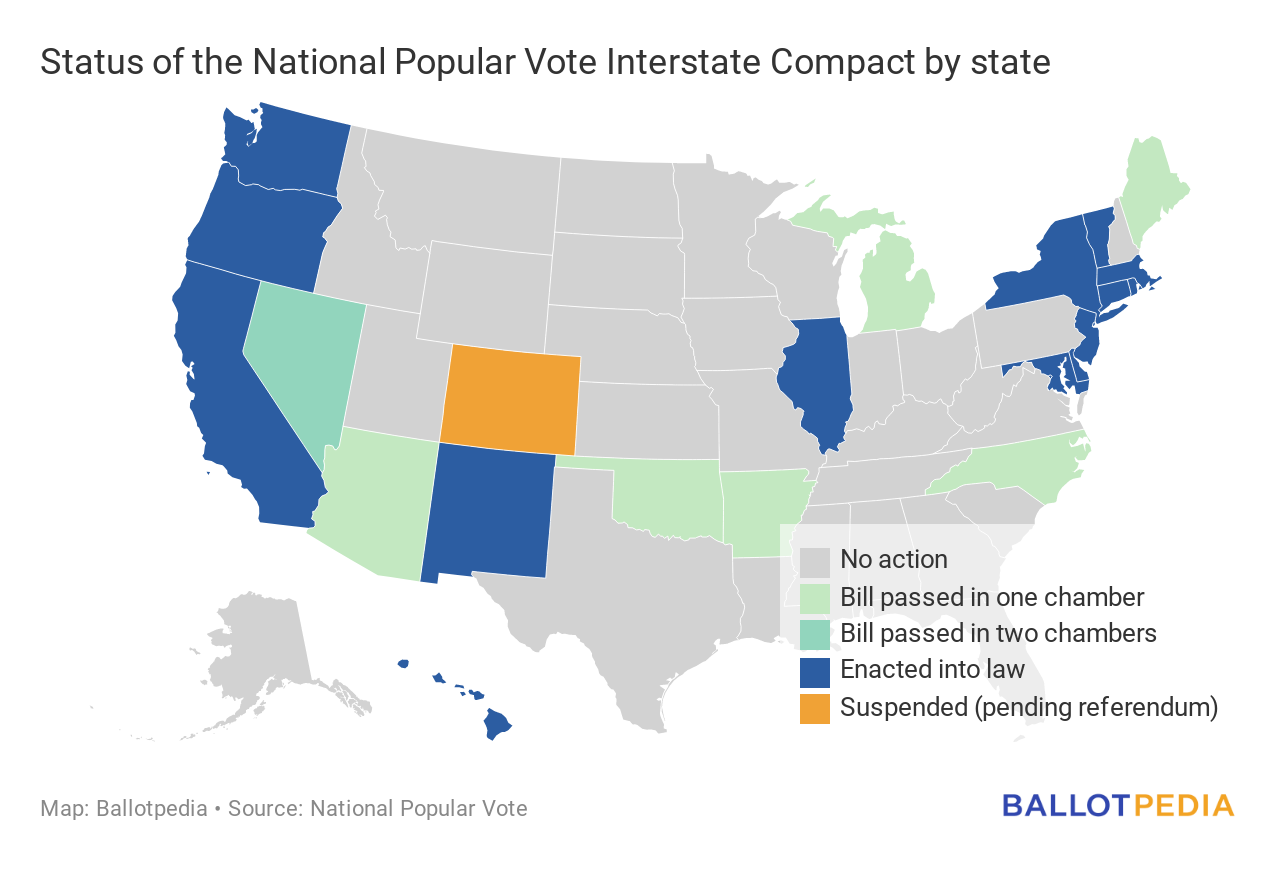Colorado voters to decide in 2020 whether to join the National Popular Vote Interstate Compact
Colorado voters will decide in November 2020 whether they want the state to join the National Popular Vote Interstate Compact. The secretary of state certified a veto referendum August 29. It will be the first veto referendum to appear before Colorado voters since 1932.
The National Popular Vote Interstate Compact (NPVIC) is an interstate agreement to award each member state’s presidential electors to the winner of the national popular vote. It would go into effect if states representing at least 270 electoral college vote to adopt it. Fifteen states and Washington, D.C.,—representing a total of 196 electoral votes—have joined the NPVIC.
The Colorado legislature approved a bill—which was signed by Governor Jared Polis (D)—joining the state to the NPVIC earlier this year. It passed the legislature along party lines, with all yes votes coming from Democrats and all Republicans voting against it. Colorado is one of 14 Democratic trifectas. Thirteen of the 15 states to join the NPVIC and Washington, D.C., were controlled by Democratic trifectas at the time. Two—Hawaii and New York—were controlled by divided governments.
Most states currently use a winner-take-all system for awarding their electoral votes in the Electoral College. Under this method, the presidential candidate that receives a plurality of the popular vote in a state receives all of that state’s electoral votes. In five of 58 presidential elections, the winner of the electoral college did not receive the most popular votes. This occurred most recently in the 2016 presidential election as Donald Trump received 304 electoral votes and Hillary Clinton had more total votes nationwide.
Protect Colorado’s Vote—a group that opposes Colorado joining the NPVIC—reported submitting over 227,000 signatures on August 1 to trigger the veto referendum. The secretary of state determined that enough signatures were valid—124,632 were required—to qualify the measure for the November 3, 2020, ballot.
From 1912 to 1932, Colorado voters decided 13 veto referendums. Of those, 10 were successful in overturning the targeted legislation and three resulted in the law being upheld. Since 1906, 521 veto referendums have appeared on the ballot across the country in 23 states. During that time, voters repealed 340—65.3%—of the targeted laws.

Learn more
|